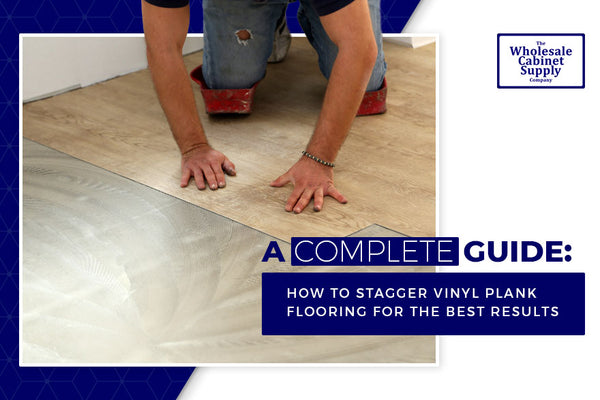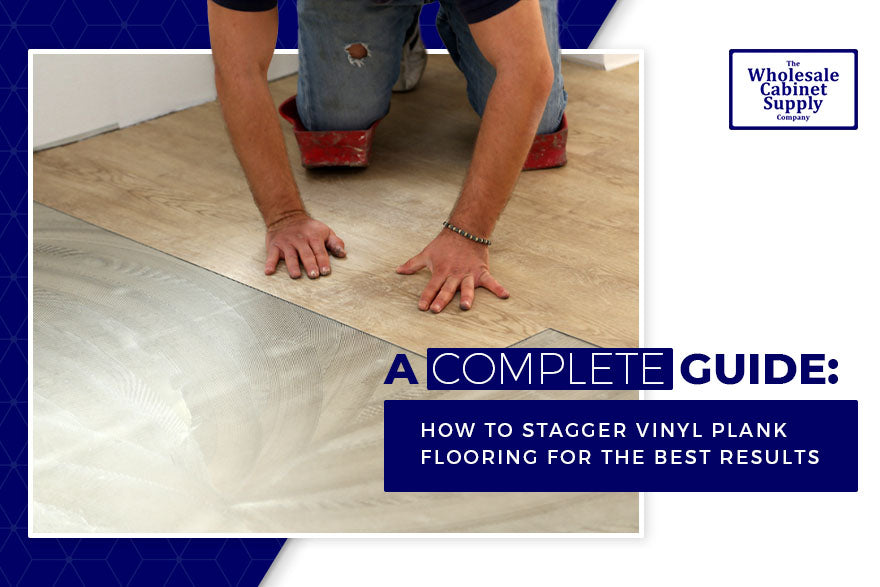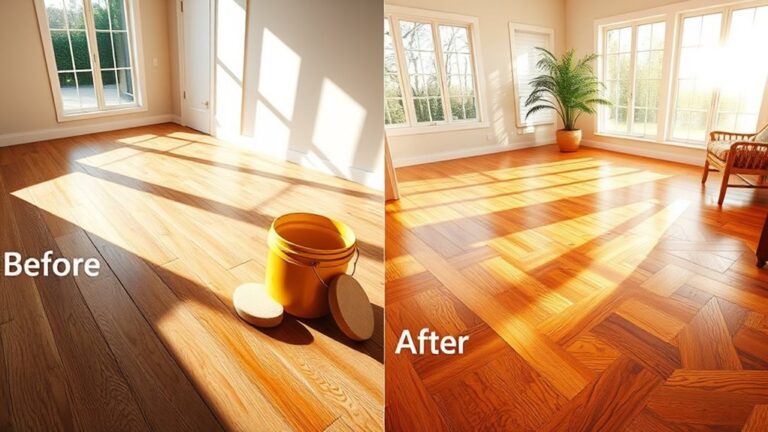Vinyl plank flooring can expand and contract depending on the temperature and humidity conditions of the environment. It is important to consider these factors to ensure proper installation and avoid any potential issues.
Vinyl plank flooring is a popular choice for homeowners due to its durability and low maintenance. However, it is essential to understand that this type of flooring can expand and contract. The amount of expansion and contraction will vary depending on factors such as temperature and humidity levels in the environment.
Changes in temperature and humidity can cause the vinyl planks to expand or contract. Too much expansion can result in gaps between the planks, while excessive contraction can cause the planks to buckle or warp. To prevent these problems, it is crucial to acclimate the flooring to the environment before installation and maintain a consistent temperature and humidity level in the room. Proper installation techniques, including leaving expansion gaps around the perimeter of the room, can also help accommodate the natural movement of the vinyl planks. By understanding and addressing the potential for expansion and contraction, you can ensure a durable and long-lasting vinyl plank flooring installation.
Understanding Vinyl Plank Flooring
Definition and description of vinyl plank flooring: Vinyl plank flooring is a versatile and durable flooring option that replicates the beauty of hardwood while offering additional benefits. It is composed of multiple layers, including a wear layer, printed design layer, and backing layer. The wear layer provides protection against scratches and stains, ensuring longevity. The printed design layer mimics the appearance of wood grains, creating an authentic and natural look. The backing layer adds stability and soundproofing qualities.
Benefits and popular uses of vinyl plank flooring:
| Benefits | Popular Uses |
| 1. Durability and resistance to wear | 1. Residential homes |
| 2. Moisture resistance | 2. Commercial spaces |
| 3. Easy maintenance and cleaning | 3. Offices and workplaces |
| 4. Wide variety of designs and styles | 4. Retail stores |
| 5. Affordable alternative to hardwood | 5. Educational institutions |
Whether you are looking to upgrade your home or enhance a commercial space, vinyl plank flooring offers numerous benefits. Its durability and resistance to wear make it suitable for high-traffic areas. Moreover, its moisture resistance makes it ideal for spaces prone to spills, such as kitchens and bathrooms. Its easy maintenance and cleaning requirements save both time and effort. Additionally, the wide variety of designs and styles available ensures that you can find the perfect vinyl plank flooring to match your aesthetic preferences. Furthermore, its affordability compared to hardwood makes it an attractive option for budget-conscious individuals. From residential homes to retail stores and educational institutions, vinyl plank flooring is a popular choice for its versatility and beauty.
Expansion And Contraction In Vinyl Plank Flooring
When it comes to vinyl plank flooring, it is important to understand the concept of expansion and contraction. Vinyl plank flooring is known for its ability to expand and contract with changes in temperature and humidity. This natural movement is a result of the materials used in the flooring and can have an impact on the long-term performance of the product.
There are several factors that can affect the expansion and contraction of vinyl plank flooring. One of the main factors is temperature. As temperatures rise, the flooring may expand, while lower temperatures can cause the flooring to contract. Humidity levels can also play a role, as high humidity can cause the flooring to expand, while low humidity can lead to contraction.
Other factors that can affect expansion and contraction include the installation method, subfloor preparation, and the type of adhesive used. It is important to follow the manufacturer’s guidelines for installation and take into consideration the environmental conditions of the space where the flooring will be installed.
Understanding The Science Behind Expansion And Contraction
Thermal expansion and contraction is a natural phenomenon that affects various materials, including vinyl plank flooring. Vinyl plank flooring is composed of several layers, including a core layer that determines its stability and durability. One of the key factors that contribute to the expansion and contraction of vinyl plank flooring is temperature fluctuations.
When exposed to high temperatures, vinyl plank flooring can expand, causing the planks to expand and push against each other. On the other hand, low temperatures can cause the flooring to contract, resulting in gaps between the planks. This is known as thermal expansion and contraction.
The role of temperature fluctuations in vinyl plank flooring expansion and contraction is significant. It is important to note that extreme temperatures can have a more pronounced effect on the flooring. For instance, if vinyl plank flooring is exposed to direct sunlight or placed near heat sources, such as radiators or underfloor heating, it can lead to increased expansion.
To mitigate the impact of expansion and contraction, it is recommended to acclimate the vinyl plank flooring to the room’s temperature before installation. Additionally, ensuring proper spacing between the planks and using expansion gaps helps accommodate any potential movement due to temperature changes. By understanding the science behind expansion and contraction, you can make informed decisions during the installation and maintenance of vinyl plank flooring.
Effects Of Humidity On Vinyl Plank Flooring
Humidity levels can have a significant impact on the expansion and contraction of vinyl plank flooring. Vinyl plank flooring is made of a synthetic material that can expand and contract with changes in moisture levels. When humidity is high, the moisture in the air can cause the vinyl planks to expand. Conversely, when humidity is low, the lack of moisture can cause the planks to contract. These fluctuations in size can lead to gaps between the planks or even buckling.
To manage humidity in different environments, there are a few tips you can follow:
| 1. | Use a hygrometer to monitor the humidity levels in your space. |
| 2. | Keep the area well-ventilated to help regulate moisture levels. |
| 3. | Consider using dehumidifiers or humidifiers to maintain an optimal humidity range. |
| 4. | Use fans or air conditioning to control humidity in hotter environments. |
| 5. | Address any underlying moisture issues, such as leaks or high humidity in basements. |
By following these tips, you can help minimize the effects of humidity on your vinyl plank flooring and ensure its longevity.
Acclimation Process For Vinyl Plank Flooring
| Acclimation Process for Vinyl Plank Flooring | |
|---|---|
| Importance of acclimating vinyl plank flooring before installation | |
| Step-by-step guide for proper acclimation | |
|
Acclimating vinyl plank flooring is a crucial step before installation to ensure its long-term performance. Vinyl plank flooring is known to expand and contract due to changes in temperature and humidity levels, and acclimation helps minimize these changes. Here’s a step-by-step guide to proper acclimation:
| |
Proper Installation Techniques
Proper installation techniques are crucial to minimize expansion and contraction issues when it comes to vinyl plank flooring. By following best practices, you can ensure a stable and durable floor that will withstand temperature and humidity changes. Here are some tips to consider:
- Choose the right underlayment: Selecting the appropriate underlayment is essential to prevent movement and reduce expansion and contraction. Look for underlayment that provides moisture resistance and sound absorption properties.
- Acclimate the flooring: Before installation, it is important to acclimate the vinyl planks to the room temperature and humidity conditions. This allows the planks to adjust, minimizing the potential for expansion and contraction after installation.
- Follow manufacturer’s guidelines: Always refer to the manufacturer’s installation instructions and guidelines. Each flooring product may have specific requirements regarding subfloor preparation, adhesive application, and expansion gaps.
- Allow for expansion gaps: Leave adequate expansion gaps around the perimeter of the room and at doorways. These gaps allow the flooring to expand and contract without causing damage or warping.
- Use proper installation techniques: Ensure the planks are properly aligned and locked into place during installation. Avoid overstretching the material or installing it too tightly, as this can increase the risk of expansion and contraction issues.
Expansion Gaps And Transition Pieces
Vinyl plank flooring is a popular choice for homeowners due to its durability and versatility. However, it is important to understand how much vinyl plank flooring can expand and contract to avoid any issues down the line. Expansion gaps play a crucial role in accommodating these natural movements, allowing the flooring to breathe and preventing warping or buckling. These gaps are typically installed around the perimeter of the room and in any areas with fixed objects or transitions, such as doorways or archways. Transition pieces are used to cover these gaps and create a seamless transition between different flooring materials or rooms. There are different types of transition pieces available, such as T-moldings, reducers, and threshold strips, depending on the specific needs of your installation. By properly installing expansion gaps and using suitable transition pieces, you can ensure that your vinyl plank flooring can expand and contract without causing any damage.

Maintenance Tips For Minimizing Expansion And Contraction
Proper maintenance of vinyl plank flooring is crucial to minimize expansion and contraction issues. By following these regular cleaning and maintenance practices, you can prevent potential damage and ensure your flooring lasts longer:
- Regular Cleaning: Sweep or vacuum your vinyl plank flooring daily to remove dirt and debris. Wipe off spills immediately using a soft cloth to prevent any moisture from seeping in.
- Use the Right Cleaning Products: Only use manufacturer-recommended cleaning solutions and avoid harsh chemicals or abrasives that may damage the protective layer of the planks.
- Protect from Scratches: Place felt pads under furniture legs to avoid scratching the flooring. Use mats or rugs in high traffic areas and entranceways to minimize dirt and moisture exposure.
- Seasonal Care: During extreme temperature changes, maintain a stable indoor climate to prevent excessive expansion or contraction of the vinyl planks. Consider using humidifiers or dehumidifiers, if necessary.
- Precautions to Prevent Damage: Avoid dragging heavy objects across the floor to prevent dents and scratches. Trim your pet’s nails regularly to prevent them from causing any damage as well.
By adopting these maintenance practices and taking necessary precautions, you can successfully minimize expansion and contraction issues, ensuring your vinyl plank flooring retains its aesthetic appeal and durability for years to come.
Frequently Asked Questions On How Much Does Vinyl Plank Flooring Expand And Contract
How Much Does Vinyl Plank Flooring Expand And Contract?
Vinyl plank flooring typically expands and contracts about 1/4 to 1/2 inch in width for every 10 feet of flooring. This expansion and contraction is normal and occurs due to changes in temperature and humidity levels. It is important to leave sufficient space around the edges of the flooring to allow for this movement.
Conclusion
To sum it up, vinyl plank flooring is designed to withstand expansion and contraction due to temperature and humidity fluctuations without significant damage. By understanding how much vinyl plank flooring can expand and contract, you can make informed decisions about installation, choosing the right product for your space, and taking necessary precautions for long-term durability.
Proper installation, maintenance, and climate control are crucial factors in ensuring the longevity of your vinyl plank flooring. Remember to consult with professionals for guidance tailored to your specific needs.




